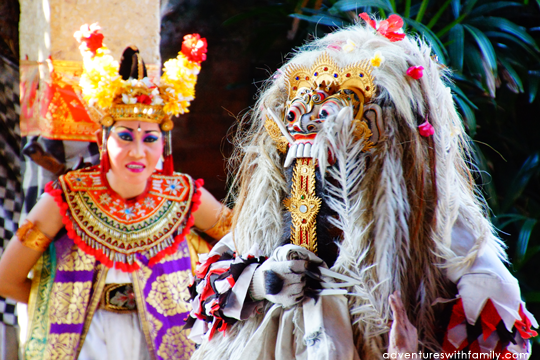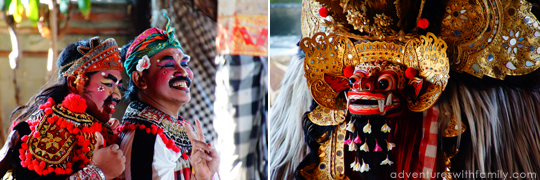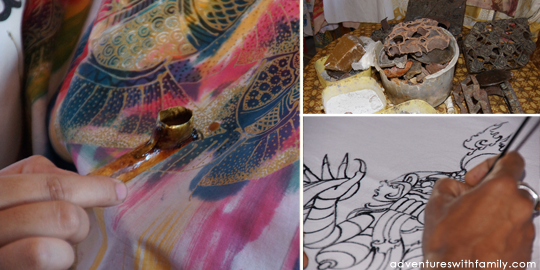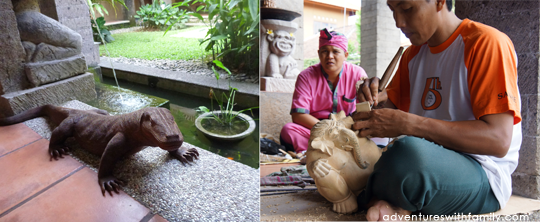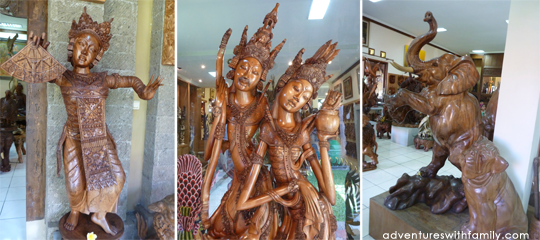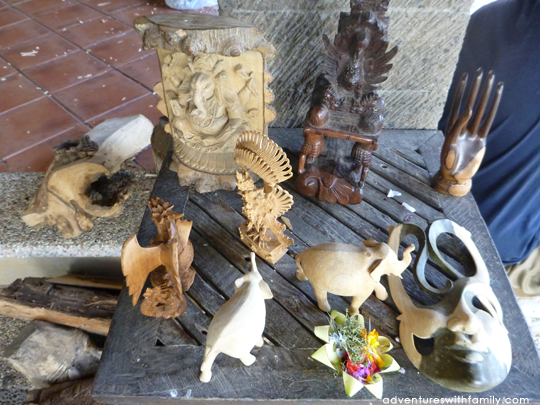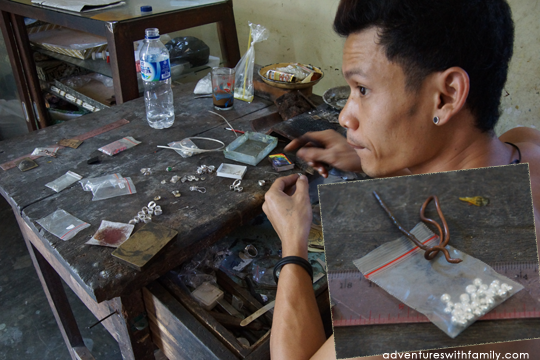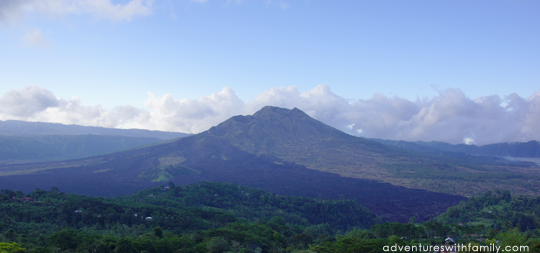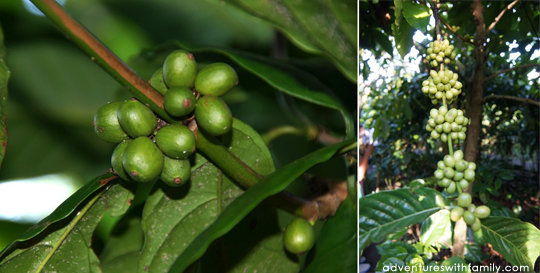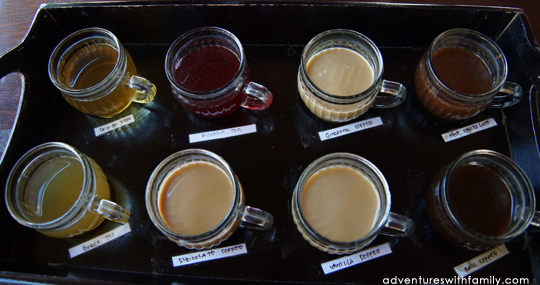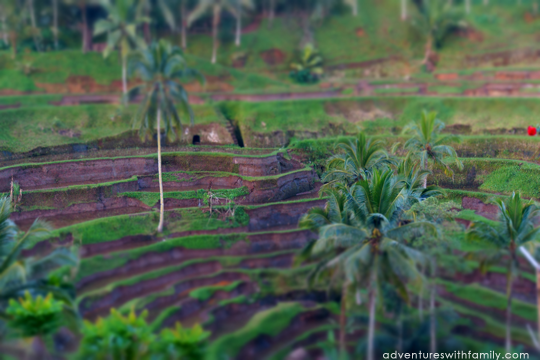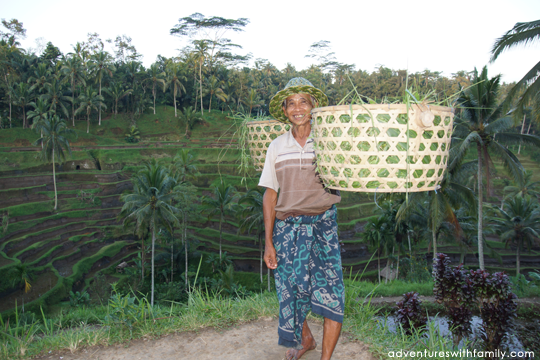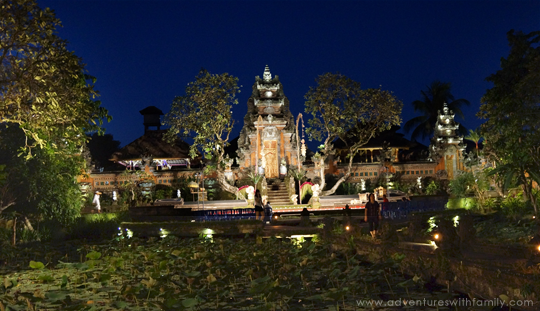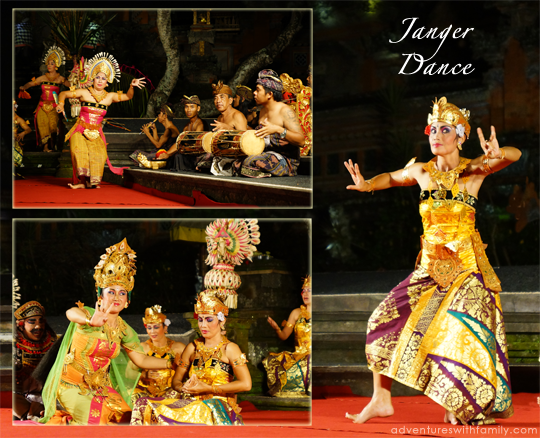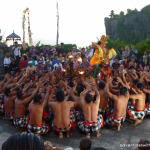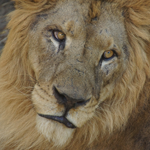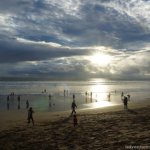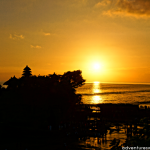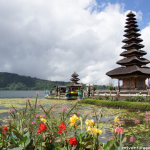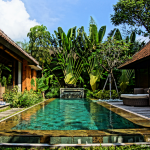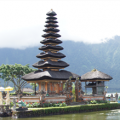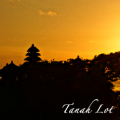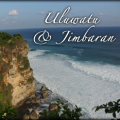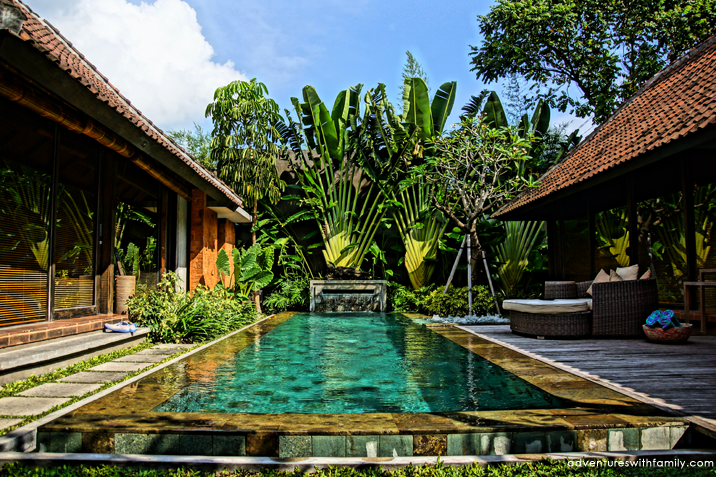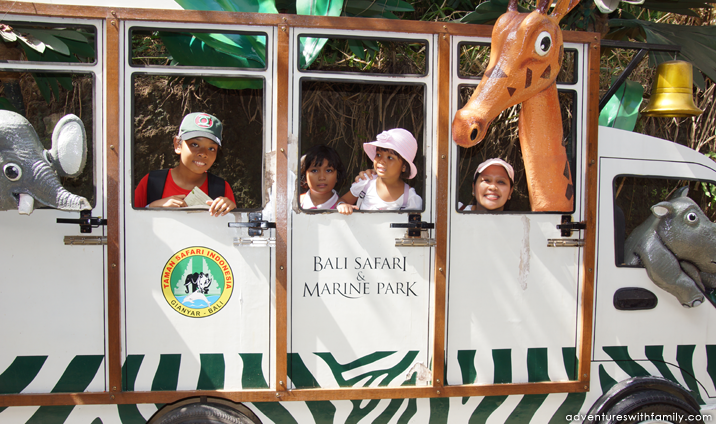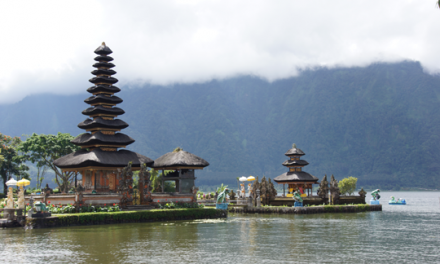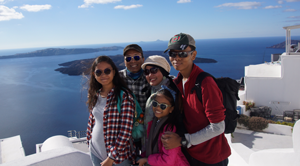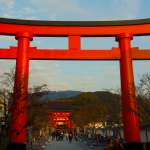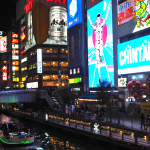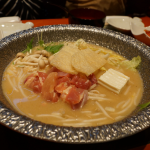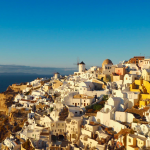On our first full-day trip around Bali, we had a jam-packed itinerary from morning to night. We started the morning with a Barong and Kris Dance near Ubud, followed by Ubud’s batik painting, wood carving, and silver making. After which, we headed to Kintamani to see a volcano and a coffee plantation. On our way back to Ubud, we stopped by the Rice Terraces at Tegalalang. In Ubud, we watched a Balinese dance performance under the moonlight at the Ubud Water Palace.
Barong and Kris Dance
The Barong and Kris Dance is a dance narrating the fight between good and evil. The evil character casted a spell on soldiers to make them want to kill themselves with their own Kris (a dagger with a wavy but sharp blade). The good mythical animal, Barong, casted another spell to turn the soldiers’ bodies resistent to the sharp blade. As expected, the good triumphed over evil. The part where the solders’ poked their Kris hard against their own throats was a little disturbing, especially for the kids. Even if the Kris was blunt, they were jamming the pointed tip really hard against their throat.
This was the second time I had seen a Barong and Kris Dance. The last one, 12 years ago, was more traditional and authentic. Now, it has become more commercial with the injection of not-so-funny comedic moments that did not gel in with the serious story they were trying to tell. Thankfully, apart from these odd moments, the rest of the show was entertaining.
Ubud
Ubud is the heart of Balinese art and culture. It is where you can find Balinese art work like paintings and wood carvings and many shops selling goods from the region’s artisan. Balinese dance performances are also aplenty in this area.
Balinese Batik Painting
Our first stop in Ubud was to see how the Indonesian batik was made. There was also a large shop selling a lot of batik stuff, from clothes, to bags, and even tissue paper holder. The thing about shops in Ubud was that they charged extra for payments using credit cards, so I regretted not having more cash with me.
Wood Carving
The other art that the locals are good at is wood carving. They can carve almost anything out of various types of wood. Look at the reptile on the left. Can you believe that it is made from wood?
My family also learnt about the various types of wood that were being used for the carvings. The most interesting one was the black and white wood from the hibiscus tree that gave a marble effect (bottom right of photo below). Do you know what type of wood the pieces below are made up of?
Hint: There are carvings from teak, mahogany and sandalwood.
Celuk Silver Factory
Next stop was the silver factory in Celuk. If you look at the photo inset, the silver balls and copper wire would be melted together so that they could be easily shaped. There was a variety of inexpensive silver jewellery on sale, including rings, earrings, bracelets, pendants and necklaces.
Kintamani
We left Ubud and made our way to Kintamani. A visit to Kintamani to see the active volcano, Mount Batur, is one of the popular tours in Bali.
There were several eateries with a fantastic view of Mount Batur.
Coffee Plantation
Next, we visited a coffee plantation not too far away from Mount Batur. I didn’t know that coffee beans grow in cute little bundles like satay or kebab on a stick. See the photo on the right.
After a walk around the plantation, we sat down in a little shack and were offered 8 different types of coffee or tea to sample for free. We had lemon tea, rosella tea, ginseng coffee, hot chocolate, ginger tea, chocolate coffee, vanilla coffee and Bali coffee. There was a little shop where we could purchase the coffee or tea powders to bring home.
Kopi Luwak
The plantation also produced and served Kopi Luwak for those who dared to drink. Kopi Luwak is a very expensive coffee outside of Indonesia, but at the plantation, a cup costed around S$5 (US$3.50). Kopi Luwak is a coffee drink made from beans that had been pooped out of a civet cat, hence the description Cat-Poop-Cino. The red ripe coffee beans eaten by the civet cat undergoes chemical treatment and fermentation and are pooped out of the cat with the beans still intact. At the plantation that we visited, the civet cat roamed freely in the forest. The beans were collected from the forest floor, cleaned, then roasted and grounded. Imagine looking for these beans every day from the forest floor. It’s like finding a needle in a haystack. No wonder the cost of Kopi Luwak was usually much higher than other types of coffee.
Rice Terraces of Tegalalang
After the plantation, we made a quick stop at the Rice Terraces of Tegalalang. There were a number of rice terraces in Bali, but this one was one of the most visited. When we were there in June, they were growing new crops, so each terrace had mostly water. I think it would have been nicer to be there just before the harvest period when every terrace was full of green rice padi.
Here’s a picture of a friendly local happily posing in front of the rice terraces for us.
Ubud Water Palace
We returned to Ubud again to watch a cultural dance performance at the Ubud Water Palace. The Water Palace’s pond filled with water lilies coupled with the soft illuminations and cool moonlit night set a relaxing atmosphere for a Balinese dance performance.
Balinese Janger Dance
The Water Palace had different types of traditional performances every night, from Legong Dance to Ramayana Ballet. On the day that we went, it was showing a Janger Dance. There were many other performances around the same time within walking distance of each other.
Dining in Ubud
One of the interesting Indonesian restaurants to try in Ubud was Bebek Semar Warung which served halal crispy duck with steamed rice, sauteed vegetables and sambal. The warung had a lovely view of a rice plantation.


